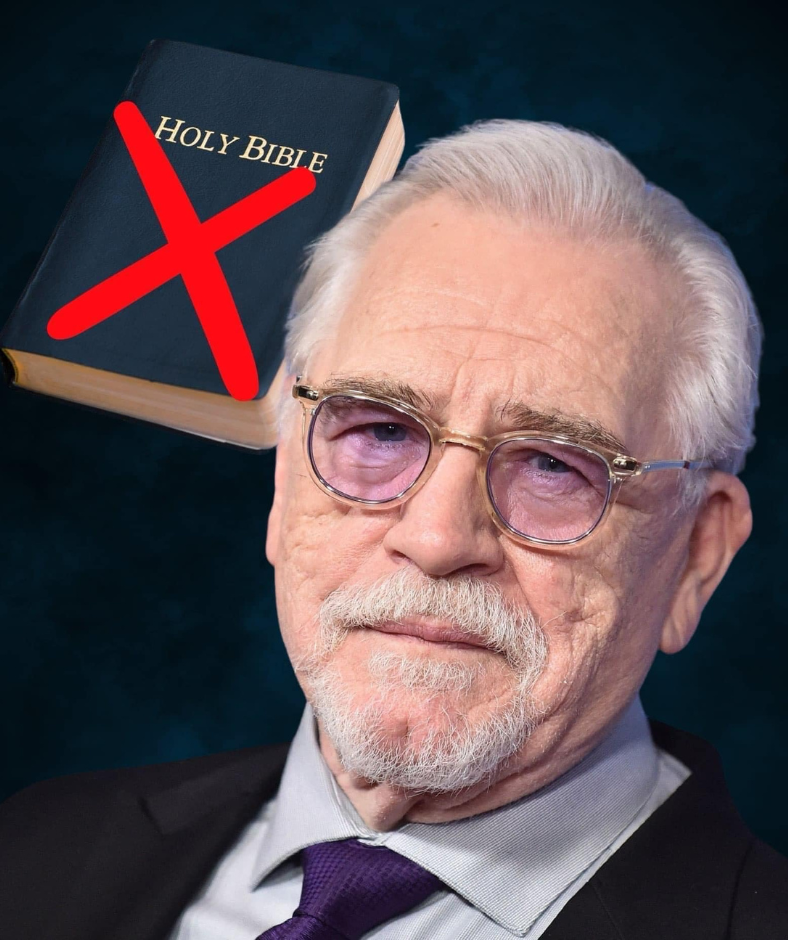Brian Cox, the acclaimed actor known for his role as Logan Roy in the hit TV series “Succession,” has recently made waves with his bold and controversial comments about the Bible. In a candid discussion on “The Starting Line” podcast, the 77-year-old self-professed atheist denounced the Bible as “one of the worst books ever,” citing it as a work filled with “propaganda and lies” that perpetuates harmful patriarchal narratives.
Cox’s critique of the Bible delves deep into the heart of the text, challenging the credibility and moral lessons of its foundational stories. He specifically takes issue with narratives such as the creation of woman from Adam’s rib, labeling them as misleading myths that do not fulfill the human need for spiritual guidance.

Furthermore, Cox explores the impact of organized religion on societal progress, asserting that rigid belief systems hinder advancement by promoting ideologies external to individual understanding. He cites historical and contemporary conflicts, including the Holocaust and the ongoing wars in Ukraine and Gaza, as examples of the detrimental effects of these belief systems that, in his view, “fail humanity repeatedly.”
Despite his scathing critique of traditional religious texts, Cox acknowledges the universal human quest for spiritual connection. He finds his own spiritual fulfillment in the theater, which he regards as “the true church” because it represents the essence of humanity.
Cox’s comments have undoubtedly sparked a heated debate, with many defending the Bible’s significance and its role in shaping human history and values. While some may agree with his perspective, others may argue that the Bible’s teachings and narratives continue to provide spiritual guidance and moral lessons for millions of believers around the world.
Brian Cox’s bold and provocative statements about the Bible have undoubtedly generated a strong reaction, both from supporters and critics. As an influential public figure, his words will undoubtedly contribute to the ongoing discourse surrounding the role and relevance of religious texts in the modern world. Regardless of one’s personal beliefs, Cox’s commentary invites us to critically examine the impact and influence of the Bible in shaping our collective understanding of spirituality, morality, and humanity.





